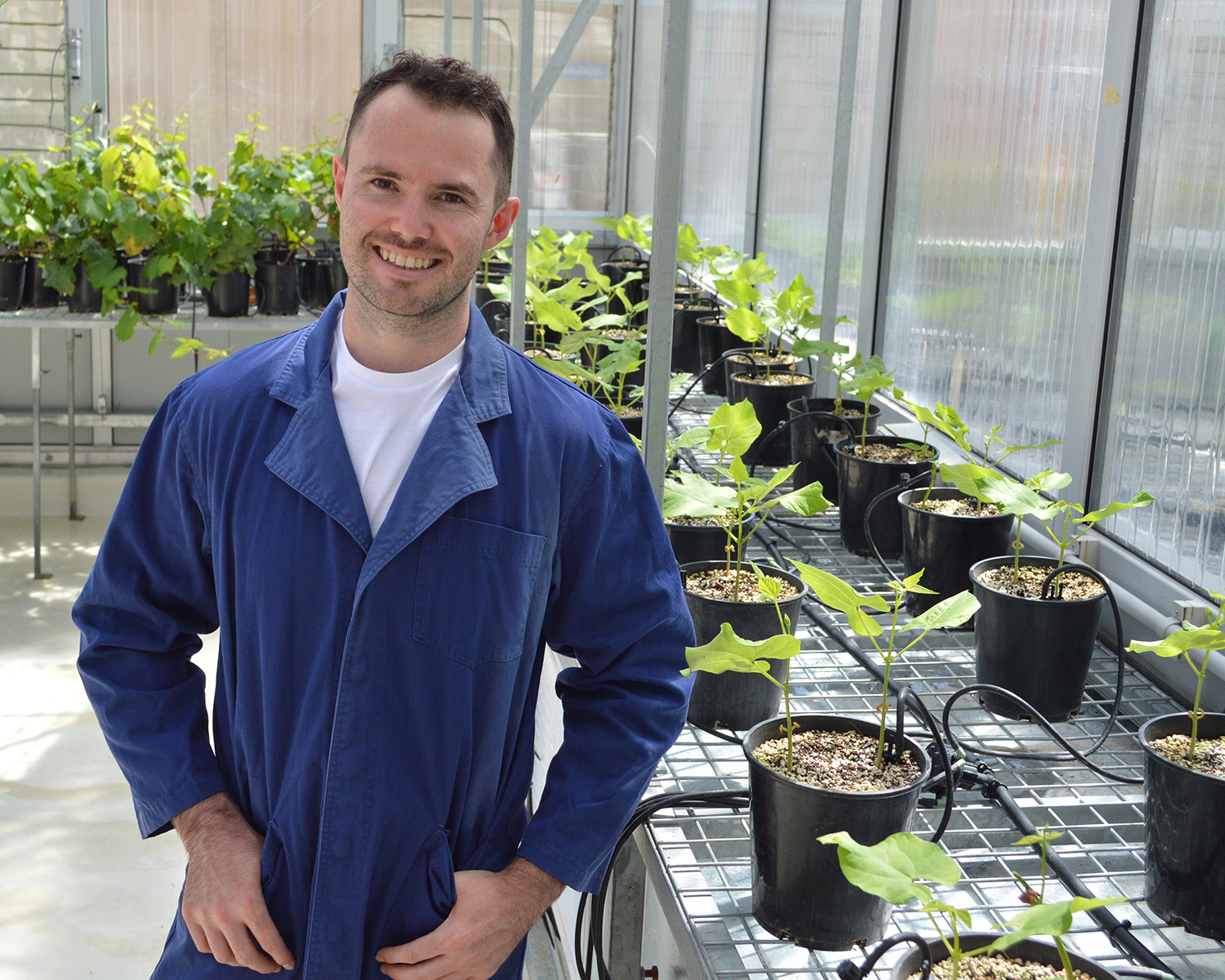Researcher Highlights
Feeding the future
Dr Joseph Pegler is a molecular plant biologist whose work aims to deliver food security for our increasing population.

In a world with an increasing population in the face of climate change, the question of how we continue to feed the world with limited arable land is one that Joey is looking to address.
With continents experiencing increased frequencies of extreme temperatures, fires, floods and droughts how do we ensure that we can continue to grow the food we need to survive and thrive? “I’m passionate about making a positive change with my research,” Joey says. “Plant science is fundamental in helping us to develop better yielding plants to feed people and our livestock.”
Awarded a Fulbright Future Fellowship in 2021, Joey embraced the opportunity to work with some of the world’s leading researchers at the University of Minnesota. “Having the opportunity to take what I’ve learned here in Australia and work alongside some of the US’s leaders in the field was the perfect first step I needed,” Joey says.
Joey headed to the US in June 15, 2022 and will return in December the same year– however, the collaborations will continue long after he returns.
Unlocking the genetic code of plants
Just as sequencing the human genome helped us better understand the human condition, Joey’s work looks at the DNA and RNA of plants to find out how to get bigger yields out of crop plants and how plants can be improved to be better able to adapt to increasingly challenging climactic circumstances.
“We can take a plant that we know is tough and resilient and investigate its DNA and RNA with the hope to use this understanding to create a better, more efficient crop plant,” Joey says.
In the Plant Growth Facility on the Callaghan campus, Joey tends to a range of plant species. It’s a nice environment to work, when he’s not in the lab looking down a microscope. “We’re now really seeing a renaissance with houseplants – with people understanding how surrounding yourself with plants can be soothing and beneficial for your wellbeing,” Joey adds.
The rise in popular and rare houseplants is one of those areas that sees research like Joey’s brought into the mainstream. “What’s interesting is that what’s popular in houseplants are things like highly variegated plants with white, pink or other colours combining with the green,” Joey says. “Which is the exact opposite of what we’re trying to create with large, green surfaces being much more attractive from a photosynthesis perspective.”
Modifying plants is nothing new – we’ve been doing it since the Aztecs. Many of the common foods we eat, such as bananas, corn and carrots actually looked much different back in the day. “Bananas used to be filled with seeds and were much less palatable, and the thick orange carrots we typically see are huge in relation to the thin and multicoloured versions of old. Many of the foods we are familiar with in the fruit and vegetable aisle of the supermarket are a result of thousands of years of selective breeding by ancient and modern farmers,” Joey says.
There is often a consumer backlash to genetically modified food, something Joey attributes to a lack of understanding of the science behind the practice. “Scientists worked to develop golden rice, which is modified to be rich in vitamin A, something many populations are deficient in and that is so important health-wise. But there was a huge backlash delaying its release to consumers for many decades.”
There’s a complex balancing act between doing this important work – and ensuring that the public understands why it’s being done and how. For example, a massive uptake of hemp growing could be a game-changer in our societies. “It’s cheap and easy to grow and flourishes almost anywhere,” Joey says. “It’s got a wide range of uses in fabric, paper, food and so much more. But because there’s the association with marijuana, it’s not as widely grown as it should be.”
With a passion for making a positive change through research, and a desire to share his work more widely, Joey’s aim is to make an impact. And he’s working to ensure that generations worldwide will benefit from the work that he and his fellow researchers are undertaking in greening the world for food security and sustainability.
The University of Newcastle acknowledges the traditional custodians of the lands within our footprint areas: Awabakal, Darkinjung, Biripai, Worimi, Wonnarua, and Eora Nations. We also pay respect to the wisdom of our Elders past and present.